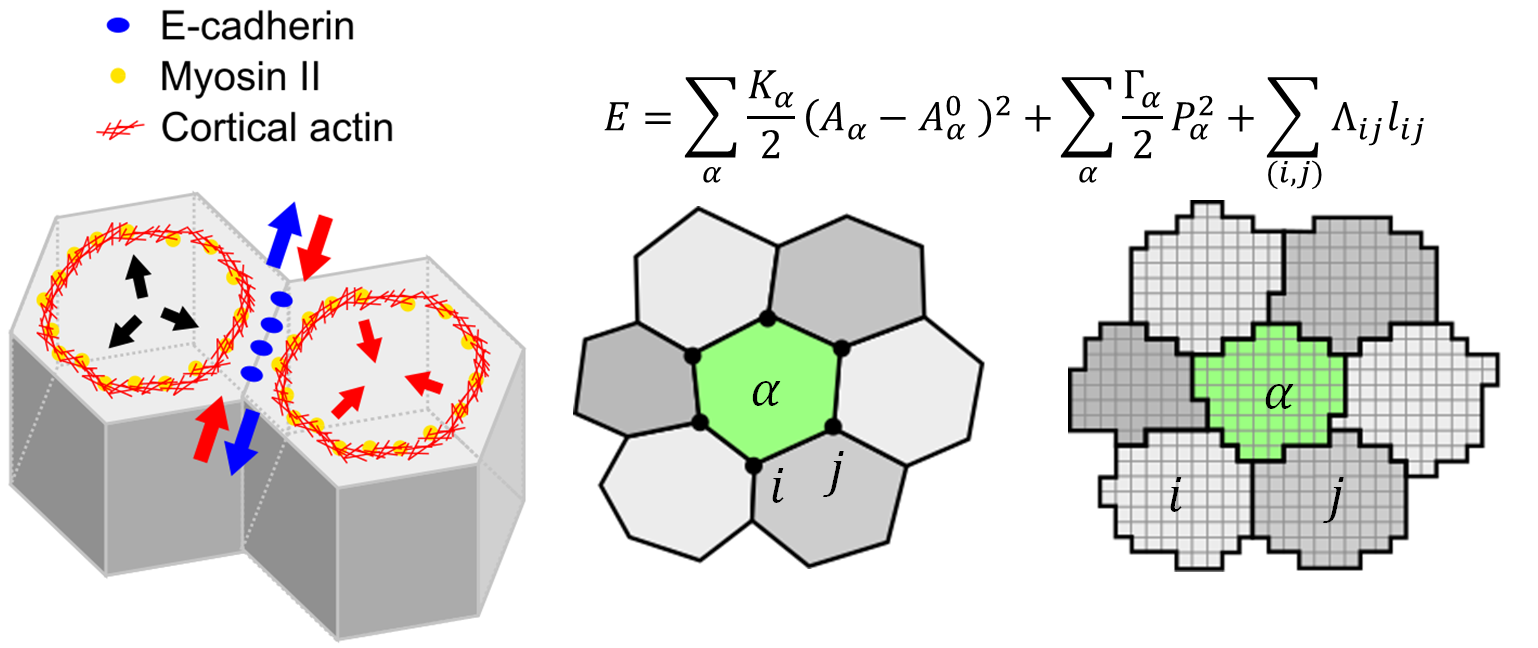Research
The growth and dynamics of epithelial cell sheets play a central role in the development of the animal embryo. Their highly organized nature means that epithelial sheets can achieve complex morphogenetic processes through the coordinated movement and rearrangement of individual cells. Elucidating the mechanisms underlying these processes will improve our understanding of embryogenesis, tissue renewal and wound healing, and has the potential to impact on tissue engineering and cancer treatment strategies.
Alongside molecular and live-imaging studies, mathematical and computational modelling provides an important tool to systematise and further refine our knowledge of epithelial morphogenesis. Modelling allows us to investigate the consequences of complex interactions when verbal reasoning fails. Yet a lack of techniques for linking cell behaviour with tissue organisation, describing their complex three-dimensional structure, and extracting quantitative information from experimental data all hinder the greater use of mathematical models in this area.

I am developing a suite of mathematical and computational tools for furthering our understanding of epithelial dynamics in developing tissues. Combining novel image segmentation and cell tracking tools with modern parameter inference and experimental design techniques, this work will build up a data analysis pipeline for live-imaging of epithelial morphogenesis that allows theoretical advances in mathematical modelling of cell- to tissue-level behaviour to be integrated with observations in a quantitative manner. This will drive forward the state of the art in this interdisciplinary field and accelerate the use of mathematics to reveal the crucial underlying processes that shape tissues, which will in turn aid our understanding of tissue development, disease and repair.
![]()